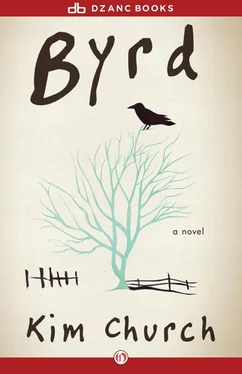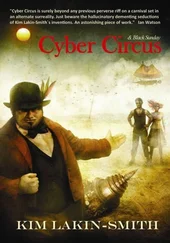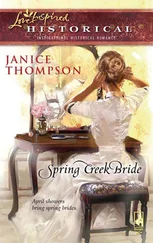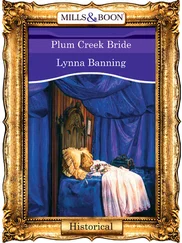Dear Byrd ,
I would like to tell you your father and I loved each other. Maybe we did; maybe love is the right word, though it’s not one we ever used. What I can tell you is, he trusted me. He let me see the purest part of him, the music part .
Trust is a sweet thing, and fragile. I was not always as careful with your father’s as I should have been .
A cold, bright Saturday morning in Greensboro. Warren Finch is brewing a pot of chamomile tea for his favorite client, who is seated at the kitchen table with her hands folded in front of her. Her long red hair is pulled back. Her face is golden in the sunlight through the Indian-print curtain. A calendar of Hindu deities hangs on the wall behind her. February is Shiva, god of creation and destruction.
“What do I smell?” she asks.
“Incense,” Warren says. “Sandalwood.”
The smell reminds him of India, where everywhere, always, there was the smell of burning. Burning sandalwood, burning hashish, burning opium, burning bodies on the ghats at Benares.
“It smells like burnt toast,” Addie says.
“I burned my toast, but that was yesterday.” He pours their tea into china cups — his mother’s wedding pattern, white with yellow roses. He sets the cups on a tray, carries the tray to the table and sets it down stiffly. Getting started is always awkward, a little like striking up a love affair, Warren imagines. The trick is to be both casual and purposeful. He has found with clients that chamomile helps, gentles things.
He serves Addie her tea and offers her half a candy bar. “For this kind of reading, I usually like to have both parties present.”
“The other party is in California,” she says.
“I know. I’m just saying.” He wishes his voice weren’t so nasal. People always think he’s complaining when in fact it is his practice, in readings and in all things, to remain neutral. To live his life without attachments, to be as a still pond (an empty pond, the Buddha would have said, but that’s not so picturesque), brilliant as glass, without a ripple. No emotion, no desire — except the one wish, for a different voice, one that could express him perfectly. A deep, resonant, comforting voice that he could wrap around his clients like a coat.
“What’s this candy?” Addie says. “It tastes like coconut.”
“Bean curd. It’s the Indian version of a Mounds bar. Believe it or not, it’s called a Barfy.”
Addie laughs. Warren laughs. Laughter is good, an auspicious beginning.
“So,” he says, “what can I tell you? Which aspects of the relationship are unclear?”
“All aspects. I don’t even know what to call the relationship, much less what to do about it.”
“What to do, what to do,” Warren says, trying to sound lighthearted. “That’s the Leo in you, wanting to do, never content simply to be.” As a rule, he isn’t attracted to Leos — too outward-manifesting. But Addie is an unusual Leo, with three planets in Virgo. She is powerful but doesn’t feel her power. She’s capable without knowing it.
“He needs to be in L.A. for his music,” she says. “I’ve been thinking about going back. Maybe staying awhile. You keep saying I should travel.”
“You don’t mean move? Give up your place here? Your job?”
Warren has long been in the habit of stopping in the Readery on his nightly walks. The store is only two blocks away, in a once-fine Victorian house. A calm, welcoming place, full of lamplight and the tapioca smell of old books. Warren doesn’t much care for reading himself; his mind is too full already. But he likes to be around other people reading. He likes sitting on a lumpy sofa, drinking tea, listening to pages turn. He likes watching Addie at her square oak desk, an old teacher’s desk, wrapping books in clear plastic jackets. She works slowly, meditatively, laying the books open to measure them, folding the jackets down to size. Sometimes, for the smaller books, cutting the jackets. She handles the books tenderly, a glow of utter devotion on her face.
She lives in an apartment on the top floor. Her window has a yellow lace curtain, always a vase of flowers on the sill.
“Travel doesn’t necessarily mean move,” he tells her. “It can, but it doesn’t have to.”
He himself is recently home from India. He went traveling as a sort of purification ritual, a way of renouncing his dependence on material comforts, of escaping the numbing day-in-day-outness of life in Greensboro. He wanted a spiritual adventure. He wanted to be able to hear the voice of God if God should speak to him. It’s when you’re between places, he has always believed, on your way from somewhere to somewhere else, that you’re most likely to hear God, because that’s when you’re most alert. Take Moses. When Moses came upon God in the burning bush he was on his way out of Egypt — fleeing, in fact, after killing a man. God said to Moses, “Go home. Go back to Egypt and take care of your people.”
In India, Warren put on orange robes and followed sadhus. He traipsed through streets where skinny men squatted over open gutters and girls skipped along kicking up dust with their bare feet, bells on their ankles tinkling insanely. He sat in an ashram listening to flies he was not allowed to swat. He braved the crowds in Benares to wash his feet in the holy filth of the Ganges. It was there, finally, in that strange, bright, teeming, burning place, that God spoke to him. And, surely not a coincidence, God told him the same thing he’d told Moses: “Go home. Go home and take care of your mother, Warren. She doesn’t know who you are, but she doesn’t have anyone else to love her.”
So Warren returned to Greensboro. To clean, tree-lined streets and the conveniences of his mother’s house — his house now. His bathtub, his gas range, his tea kettle. He returned to his clients, some of whom didn’t even realize he’d been away, and to his day job in the insurance office. Now, every evening after work, true to the promise he made to God, he stops in the nursing home to read tarot cards for his mother.
“What’s this one?” she’ll ask. “This one is pretty.”
“The Two of Cups,” Warren will say. “It’s about connecting. About healing broken relationships.”
“And what’s this one? What are these big gold things they’re holding?”
“The Two of Cups. Those are cups, Mother.”
You don’t have to go to India to know death in the midst of life, to hear the sound of silence behind the quickening pulse, to know the nothingness at the core of all being.
“I don’t think you came here to talk about moving,” he says to Addie. “Where you live, where he lives, that’s just geography.”
Addie knots her hands. “We have history,” she says. “Not a completely nice history, to be honest. But we’re connected in a way I’ve never been connected to anyone else. When I was with him this time, I felt that. I felt like I was with him. Like my showing up in his life again after so many years had filled in some missing piece.”
Poor Addie, Warren thinks. Getting involved with a Gemini. A mental, moony Gemini — exactly the sort of man who would appeal to her.
“What I can tell you,” he says evenly, “is that you aren’t going to be able to figure him out. That’s the whole point of the relationship for you.”
“How can not figuring somebody out be the point of a relationship?”
“Look.” Warren shows her Roland’s birth chart. “Your friend has no Earth in his chart. Not a trace. In fact there’s no Earth in the composite chart, despite your three planets in Virgo.” He lays her birth chart on the table alongside the composite. “Roland epitomizes everything you’re afraid of. He’s the mystery, the unknown. His sun is in the twelfth house of the relationship, the house of mystery. Which means that, to you, he will always be unknowable. Your magical mystery man. That’s his role.”
Читать дальше












